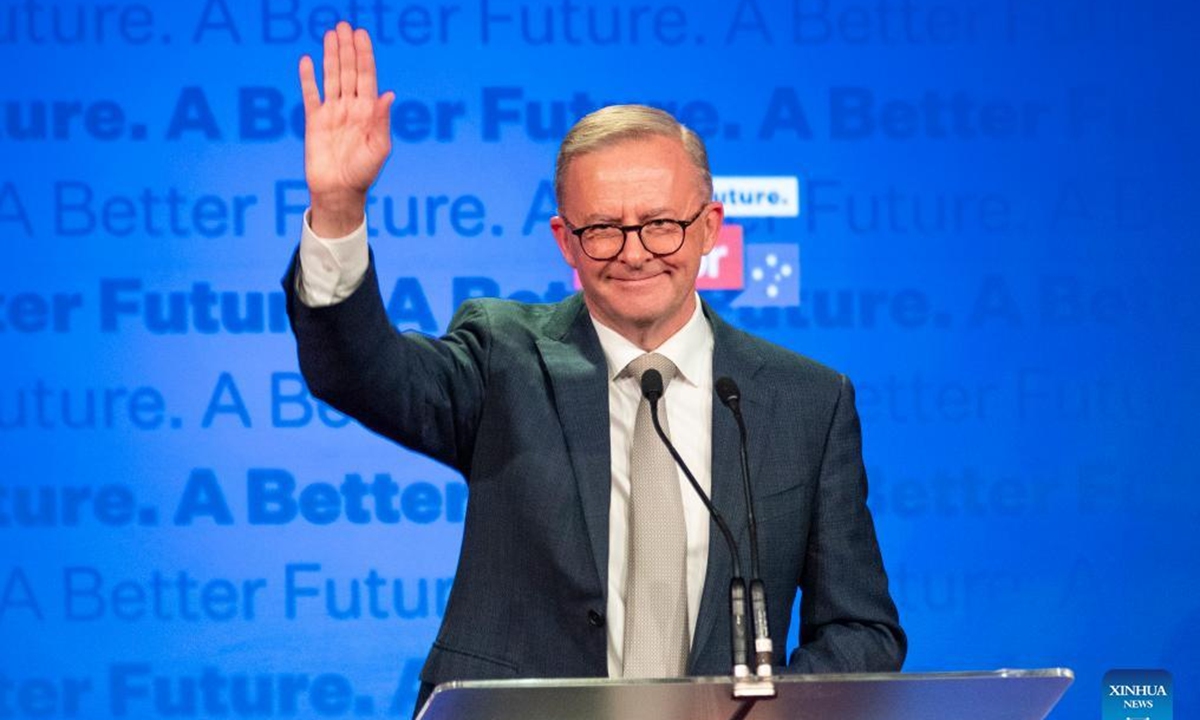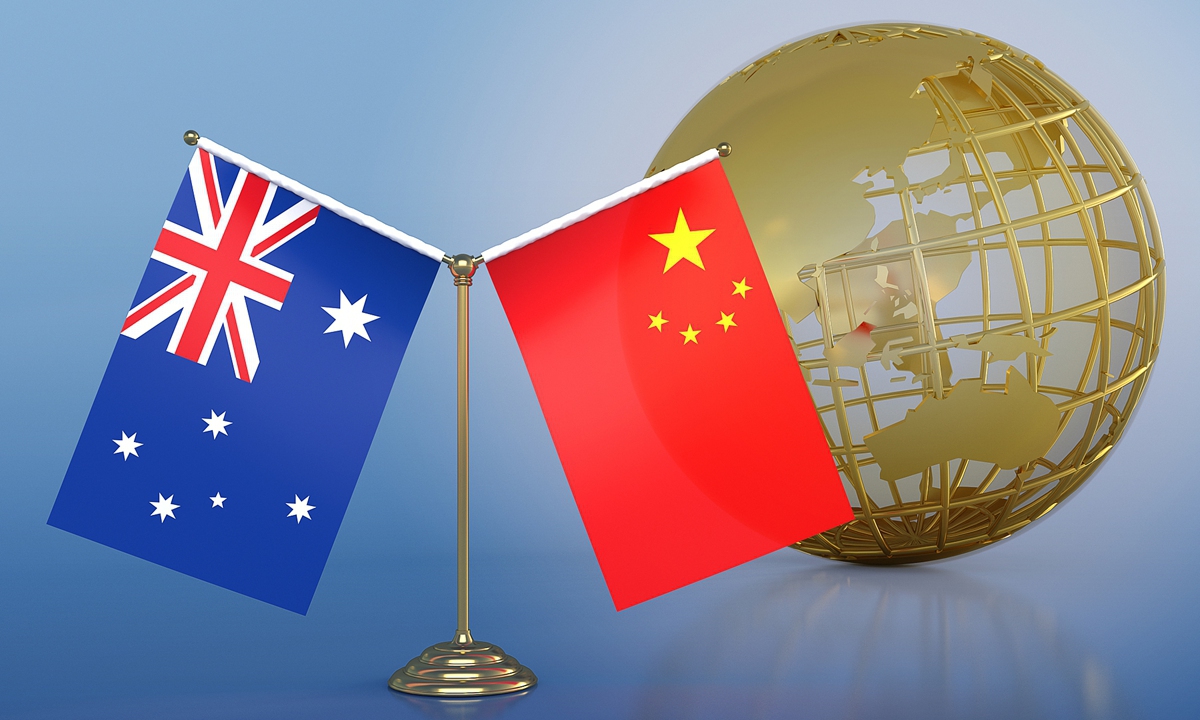Albanese's visit to China expected to be new start for bilateral ties; relations with China should not be kidnapped by US

Anthony Albanese. Photo: Xinhua
Australia's Prime Minister Anthony Albanese is scheduled to start a visit to China from Saturday amid heightened anticipation for the two countries to further stabilize ties. Analysts said that his visit will herald a new chapter of bilateral relations, but also cautioned that many barriers remain and that China-Australia ties shouldn't be kidnapped by the US or anti-Chinese forces.
The Chinese Foreign Ministry announced on Friday that Albanese will pay an official visit to China from Saturday to November 7, and will attend the opening ceremony of the 6th China International Import Expo (CIIE) and relevant events.
China welcomes Albanese's visit to China, Foreign Ministry spokesperson Wang Wenbin said, noting that this is the first visit to China by Albanese since taking office and also the first visit to China by an Australian prime minister since 2016.
Chinese leaders will also meet and hold talks with Albanese to exchange in-depth views on bilateral relations as well as international and regional issues of common interest.
China and Australia are comprehensive strategic partners with extensive common interests and broad prospects for cooperation. A sound and stable China-Australia relationship serves the fundamental interests of the two countries and peoples and is conducive to regional and world peace and stability, said Wang.
Albanese's visit will be an "ice-breaking journey," but also "a journey of hope," Chen Hong, director of the Australian Studies Center at East China Normal University, told the Global Times on Friday.
Chen noted that the relationship between China and Australia has been steady and is predicted to strengthen after certain remaining concerns between the two nations have been resolved. Albanese's visit is more like saying goodbye to the most troublesome page of bilateral relations and moving toward a new chapter.
Since 2017, Australia has taken the lead in containing China, in response to the US' more aggressive attempts to push its Indo-Pacific strategy against China. This has caused China-Australia relations to spiral downward and hit an all-time low, resulting in the suspension of various interactions, including trade and people-to-people exchanges, and raised significant concerns.
Analysts noted that after former prime minister Scott Morrison's Liberal-National coalition was defeated by Albanese's Labor Party in May 2022, the new Australian government has been attempting to engage with China in order to improve ties.
Many people from Australia also have high expectations of Albanese's visit. Vaughn Barber, chairperson of the China-Australia Chamber of Commerce, said in a recent interview that it's hoped that Albanese's visit "will lead to more opportunities and clarity for Australian businesses looking to expand or consolidate their presence in the Chinese market."
While relations between China and Australia are at an all-time low, Australia's exports of iron ore, coal, beef, and wine to China have also taken a hit. Albanese's trip to China is expected to smooth trade relations.
China's Ministry of Commerce announced on October 22 that Beijing had reached an agreement with Canberra on a "proper resolution" to trade disputes over wine and wind towers, after similar announcements were made by Australia.
Chen said that trade relations have always been the cornerstone of the relationship between China and Australia and that even in times of tension, trade volume has been high, fostering positive momentum for the two countries' relations.
In terms of politics, China accepts that Australia takes its alliance with the US as the cornerstone of its diplomatic and security policy, as long as these relationships do not jeopardize China's national security. However, while the US is advancing its Indo-Pacific strategy, Australia has been pushed to become a chess piece or spearhead for the US, said Chen.
"Is Australia really ready to play such chess, particularly when it isn't in its best interests?" asked Chen, noting that the US is the one that is not willing to see China-Australia relations warm.
Chen noted that at a time when the current China-Australia relationship is beginning to improve, Australia should know that China does not require Australia to choose sides and stand with China, while the US is demanding that it become a rival to China rather than a partner.
Australia must have a clear, independent foreign policy and political wisdom in this regard. If Australia sacrifices its relationship with China solely to maintain US hegemony in the region, it will harm its own interests as well as the stability and prosperity of the region, said Chen.

